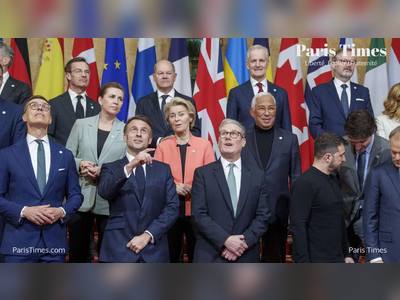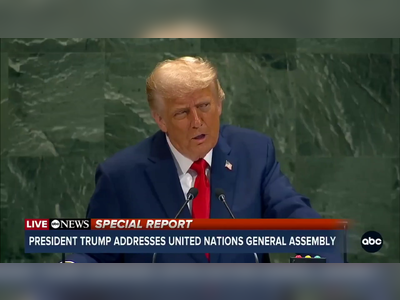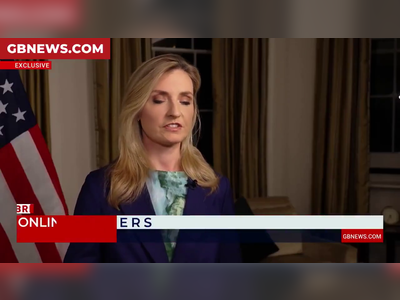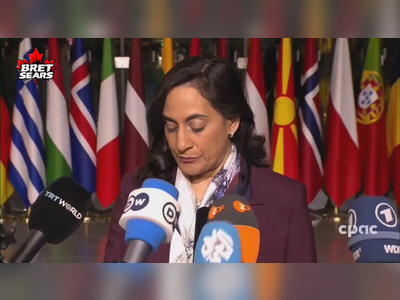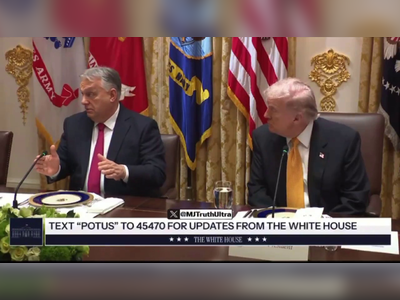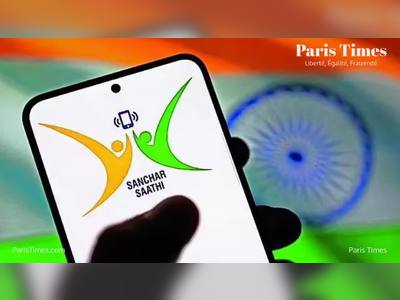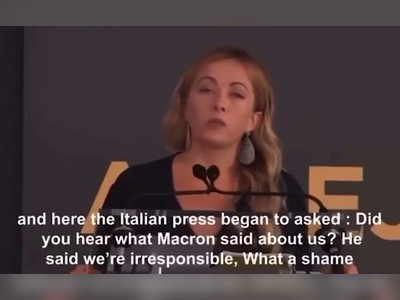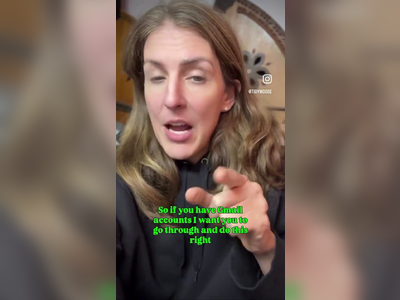Controversial Trump Administration Report on Youth Health Draws Scrutiny for Fabricated Sources
The 'Make America Healthy Again' report cites non-existent studies, raising concerns over accuracy and credibility.
A report released by the U.S. Department of Health, directed by Robert Kennedy Jr., alleges correlations between ultra-processed food consumption, pesticide exposure, and chronic diseases among American youth.
However, significant questions have arisen regarding its credibility, as at least four studies referenced within the document have been reported as non-existent by the cited authors.
Titled "Make America Healthy Again", the report was commissioned by former President Donald Trump and published on May 22. It also casts doubt on vaccine efficacy, echoing Kennedy's controversial stance on the topic.
Problems surrounding the document were highlighted on Thursday, after claims surfaced indicating that certain articles attributed to various scientists were incorrectly cited.
These inaccuracies garnered attention when they were initially reported by Notus, a media outlet affiliated with Allbritton's journalism institute.
White House Press Secretary Karoline Leavitt addressed the issue during a press briefing, attributing the discrepancies to "formatting issues" and assuring that the report would be revised.
She noted that this situation did not undermine the report's overall substance and expressed confidence in Kennedy and his team's findings, stating they relied on "reliable scientific data".
Noah Kreski, a researcher at Columbia University, clarified that a quote attributed to him in the report did not originate from any of his research and appeared to be unsupported by an actual study.
The citation led to a broken link intended to reference an article from the Journal of the American Medical Association (JAMA), which a spokesperson for the organization confirmed had not been published in any of its journals.
Katherine Keyes, an epidemiologist at Columbia University mentioned in the report, expressed concern regarding the statistics attributed to her.
She confirmed that while she conducts research related to the subject matter, she could not identify the source of the figures cited in the document.
"I would be happy to send this information to the 'Make America Healthy Again' commission for them to correct the report, although I have not yet received any information on how to contact them," she stated.
Harold Farber, a pediatrics professor at the Baylor College of Medicine, also reported that the article credited to him in the report "does not exist".
Furthermore, the Virginia Commonwealth University confirmed that Robert Findling, one of its professors, was not the author of an article advocating for psychotropic medication use among youth, as incorrectly asserted in the report.
Additionally, the report erroneously claimed that an article concerning treatments for attention deficit disorders was published in the journal Pediatrics in 2008. Alex Hulvalchick, a spokesperson for the American Academy of Pediatrics, stated that they had not located any such publication in their records.
The Department of Health has refrained from commenting on the allegations, directing inquiries to the White House.
In response to the controversy, Leavitt did not disclose how the report was compiled or whether artificial intelligence tools played a role in its creation, directing those questions back to the Department of Health.
The Democratic Party criticized the report as being "littered with misinformation" in a press release, arguing that Kennedy's department is justifying political priorities with non-existent studies and sources.
The report’s publication had generated anticipation among health professionals due to the sensitive and complex nature of the subject, as well as Kennedy’s prominent role, particularly given his anti-vaccine stance.
Kennedy has publicly criticized major U.S. medical journals, accusing them of being "corrupt" and under the influence of pharmaceutical companies.
However, significant questions have arisen regarding its credibility, as at least four studies referenced within the document have been reported as non-existent by the cited authors.
Titled "Make America Healthy Again", the report was commissioned by former President Donald Trump and published on May 22. It also casts doubt on vaccine efficacy, echoing Kennedy's controversial stance on the topic.
Problems surrounding the document were highlighted on Thursday, after claims surfaced indicating that certain articles attributed to various scientists were incorrectly cited.
These inaccuracies garnered attention when they were initially reported by Notus, a media outlet affiliated with Allbritton's journalism institute.
White House Press Secretary Karoline Leavitt addressed the issue during a press briefing, attributing the discrepancies to "formatting issues" and assuring that the report would be revised.
She noted that this situation did not undermine the report's overall substance and expressed confidence in Kennedy and his team's findings, stating they relied on "reliable scientific data".
Noah Kreski, a researcher at Columbia University, clarified that a quote attributed to him in the report did not originate from any of his research and appeared to be unsupported by an actual study.
The citation led to a broken link intended to reference an article from the Journal of the American Medical Association (JAMA), which a spokesperson for the organization confirmed had not been published in any of its journals.
Katherine Keyes, an epidemiologist at Columbia University mentioned in the report, expressed concern regarding the statistics attributed to her.
She confirmed that while she conducts research related to the subject matter, she could not identify the source of the figures cited in the document.
"I would be happy to send this information to the 'Make America Healthy Again' commission for them to correct the report, although I have not yet received any information on how to contact them," she stated.
Harold Farber, a pediatrics professor at the Baylor College of Medicine, also reported that the article credited to him in the report "does not exist".
Furthermore, the Virginia Commonwealth University confirmed that Robert Findling, one of its professors, was not the author of an article advocating for psychotropic medication use among youth, as incorrectly asserted in the report.
Additionally, the report erroneously claimed that an article concerning treatments for attention deficit disorders was published in the journal Pediatrics in 2008. Alex Hulvalchick, a spokesperson for the American Academy of Pediatrics, stated that they had not located any such publication in their records.
The Department of Health has refrained from commenting on the allegations, directing inquiries to the White House.
In response to the controversy, Leavitt did not disclose how the report was compiled or whether artificial intelligence tools played a role in its creation, directing those questions back to the Department of Health.
The Democratic Party criticized the report as being "littered with misinformation" in a press release, arguing that Kennedy's department is justifying political priorities with non-existent studies and sources.
The report’s publication had generated anticipation among health professionals due to the sensitive and complex nature of the subject, as well as Kennedy’s prominent role, particularly given his anti-vaccine stance.
Kennedy has publicly criticized major U.S. medical journals, accusing them of being "corrupt" and under the influence of pharmaceutical companies.


